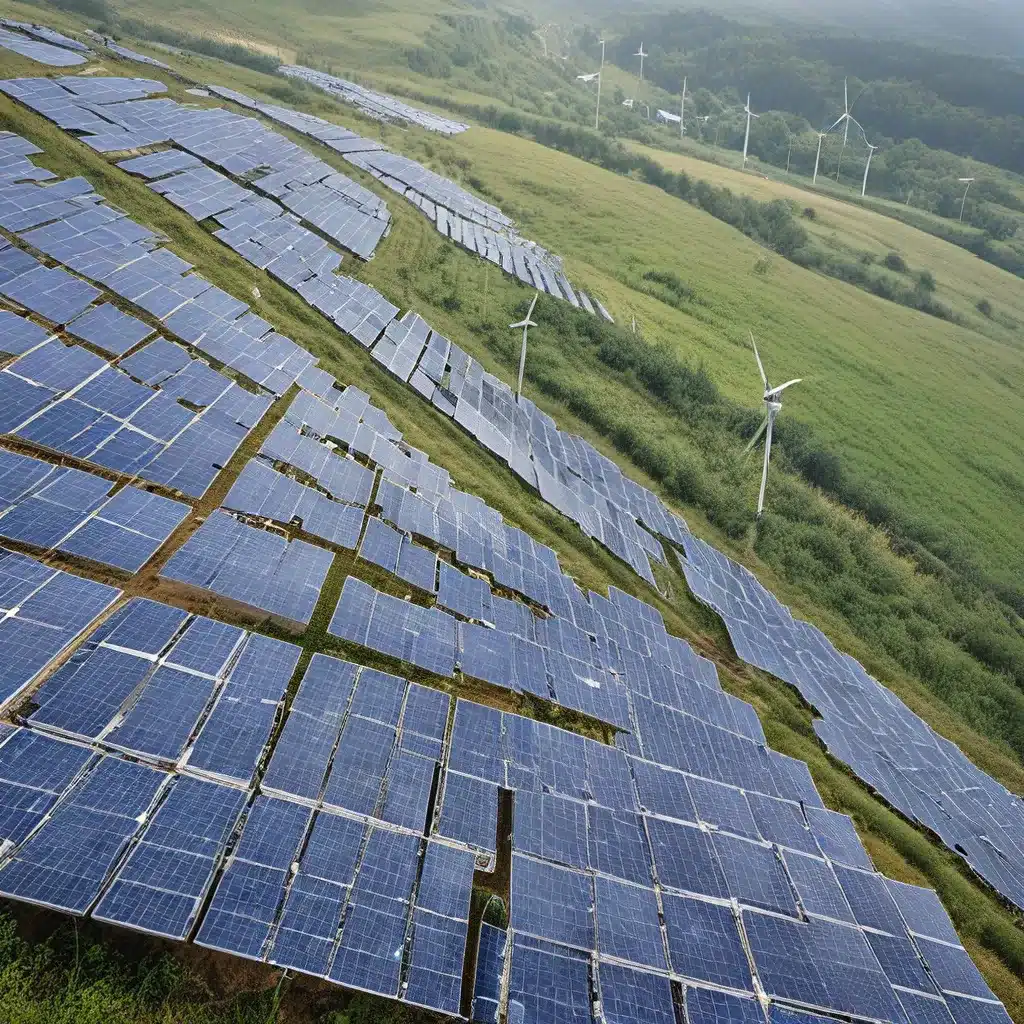
As we face the daunting challenge of climate change, the world has turned its attention to the crucial role of renewable energy in creating a more sustainable future. From the sun-drenched deserts of North Africa to the wind-swept coasts of Europe, countries are rapidly embracing the transition to clean energy. But this shift doesn’t happen in a vacuum – it requires carefully crafted regulatory frameworks that can unlock the full potential of renewable technologies.
Let me take you on a journey through the intricate web of policies, incentives, and international cooperation that are shaping the renewable energy landscape. It’s a story of progress, innovation, and the determination to create a greener, more resilient world for generations to come.
The Global Renewable Energy Landscape: A Snapshot
The United Nations Sustainable Development Goals have set an ambitious target – to ensure universal access to affordable, reliable, and modern energy services by 2030. This means that access to electricity must be expanded, the share of renewable energy in the global mix must increase substantially, and the global rate of improvement in energy efficiency must double.
The good news is that we’re making progress. From 2015 to 2021, the proportion of the global population with access to electricity has increased from 87% to 91%. Renewable energy is also making impressive gains, with countries around the world investing in solar, wind, and thermal energy sources. However, the pace of change is still not fast enough. If we continue at the current rate, about 660 million people will still lack access to electricity, and close to 2 billion people will still rely on polluting fuels and technologies for cooking by 2030.
The Power of Regulatory Frameworks
So, what’s the secret to accelerating this transition to a renewable energy future? The answer lies in the regulatory frameworks that governments put in place to enable and incentivize the adoption of clean energy solutions.
These frameworks can take many forms, from feed-in tariffs that guarantee a fixed price for renewable energy, to tax incentives that make it more financially attractive for businesses and individuals to invest in solar panels or wind turbines. Some countries have even implemented carbon pricing schemes, which put a price on greenhouse gas emissions and create a financial incentive to reduce fossil fuel consumption.
But it’s not just about the carrot – regulatory frameworks can also include the stick, in the form of emissions standards or renewable energy targets that companies and utilities must meet. This combination of carrots and sticks helps to create a level playing field, where renewable energy can compete on equal footing with traditional fossil fuels.
The Global Effort: International Cooperation and Capacity Building
Of course, no country can tackle the renewable energy challenge alone. That’s why international cooperation is essential, both in terms of sharing best practices and mobilizing the necessary financial resources.
The Sustainable Energy for All initiative, led by the United Nations Development Programme, is a prime example of this collaborative approach. By bringing together governments, businesses, and civil society organizations, the initiative is working to facilitate access to clean energy research and technology, promote investment in energy infrastructure, and expand modern and sustainable energy services in developing countries.
But it’s not just about money – capacity building is also crucial. Many developing countries lack the technical expertise and institutional capacity to fully harness the potential of renewable energy. That’s where international partnerships and knowledge-sharing come into play, helping to build the skills and infrastructure needed to drive the transition.
The Role of Innovation and Emerging Technologies
As we work to transform the global energy landscape, innovation and emerging technologies are playing a crucial role. From advanced battery storage solutions that can help integrate intermittent renewable sources into the grid, to smart grid technologies that optimize energy distribution, the renewable energy sector is a hotbed of cutting-edge innovation.
And it’s not just in the energy sector – artificial intelligence and machine learning are also being leveraged to improve the efficiency and performance of renewable energy systems. For example, AI-powered predictive analytics can help utilities better forecast renewable energy generation and optimize their operations accordingly.
The Challenges and Obstacles Ahead
Of course, the transition to a renewable energy future is not without its challenges. Grid integration, energy storage, and affordability are just a few of the hurdles that must be overcome.
Grid integration, for instance, is a crucial issue as countries work to incorporate more and more renewable energy into their electrical systems. Intermittent sources like wind and solar can pose stability challenges, requiring advanced grid management and energy storage solutions to ensure a reliable and resilient power supply.
Affordability is another concern, especially for developing countries that may lack the financial resources to invest in large-scale renewable energy projects. Innovative financing mechanisms and international cooperation will be essential in ensuring that the benefits of clean energy are accessible to all.
A Sustainable Future Within Reach
Despite the challenges, I remain deeply optimistic about the future of renewable energy. The global community is coming together like never before, and the pace of innovation and technological progress is truly inspiring.
By strengthening regulatory frameworks, fostering international cooperation, and embracing emerging technologies, we can unlock the full potential of renewable energy and create a more sustainable, equitable, and resilient future for all. It’s a future that’s within our grasp, if we have the courage to seize it.
So let’s get to work, my friends. The clock is ticking, but the rewards of our efforts will be felt for generations to come. Together, we can build a world powered by clean, affordable energy – a world that is truly sustainable, and a testament to the ingenuity and determination of the human spirit.
And remember, if you’re looking to contribute to this renewable energy revolution, be sure to check out the services offered by Firewinder. They just might have the solution you’re searching for.

